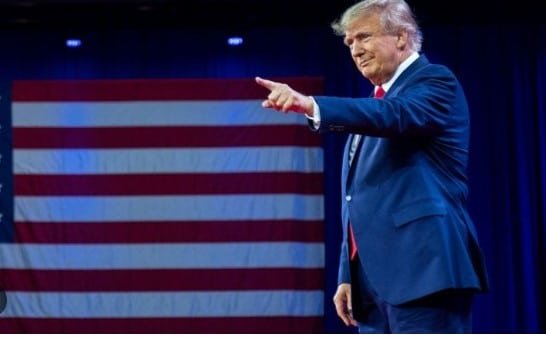Former President Donald Trump’s tenure in office was marked by controversy and polarizing rhetoric, with his statements often coming under scrutiny for their accuracy and truthfulness. In recent interviews with Time magazine, Trump’s assertions have once again sparked debate, with numerous claims being labeled as untrue. This comprehensive analysis delves into the veracity of Trump’s statements as reported by Time magazine, exploring the implications of his alleged falsehoods on various aspects of governance, including the 2020 election, the economy, foreign policy, and his presidential record.
- Assessing Trump’s Alleged Lies:
Time magazine’s report highlights at least thirty-two untrue statements made by Donald Trump during his interviews. These falsehoods span a wide range of topics, including the 2020 election, economic performance, abortion, NATO alliance, the Capitol insurrection, legal cases, and his presidential record. By scrutinizing these claims, we gain insight into the patterns of misinformation that have characterized Trump’s public discourse over the years.
- Impact of False Claims on Public Perception:
The proliferation of false information, particularly from influential political figures like Trump, can have far-reaching consequences on public perception and trust in democratic institutions. The repetition of falsehoods regarding critical issues such as election integrity and national security undermines the fabric of democracy, eroding public confidence and sowing seeds of doubt. Understanding the impact of these false claims is essential for safeguarding the integrity of the democratic process and fostering informed civic engagement.
- Fact-Checking and Media Responsibility:
Time magazine’s decision to fact-check Trump’s statements serves as a reminder of the media’s role in holding public figures accountable for their words and actions. In an era of rampant misinformation and disinformation, rigorous fact-checking is essential for ensuring the integrity and credibility of journalistic coverage. By providing readers with an objective assessment of Trump’s assertions, Time magazine empowers citizens to make informed decisions based on accurate information, thereby upholding the principles of transparency and accountability in governance.
- Implications for Political Discourse:
The prevalence of falsehoods in political discourse, particularly from high-profile figures like Trump, underscores the need for greater transparency and integrity in public communication. Misinformation not only distorts reality but also undermines the foundation of democratic governance, hindering constructive dialogue and impeding efforts to address pressing societal challenges. By confronting falsehoods head-on and promoting truthfulness in public discourse, we can foster a more inclusive and resilient democratic society.
- Repercussions for Trump’s Legacy:
The persistent dissemination of false information by Donald Trump has significant implications for his legacy as a former president. While his supporters may dismiss his falsehoods as political rhetoric, history will likely judge Trump’s presidency based on its adherence to truthfulness and integrity. The widespread documentation of his false claims, as highlighted by Time magazine’s fact-checking, may tarnish his reputation and influence public perception of his presidential record. As scholars and historians evaluate Trump’s legacy, the veracity of his statements will undoubtedly feature prominently in their assessments.
In conclusion, Time magazine’s thorough examination of Donald Trump’s statements sheds light on the pervasive nature of misinformation in contemporary political discourse. By scrutinizing the veracity of Trump’s assertions, we gain insight into the complexities of governance and the challenges of maintaining transparency and accountability in public communication. As citizens and policymakers navigate an increasingly polarized media landscape, it is imperative to uphold the principles of truthfulness and integrity, thereby safeguarding the foundations of democracy and fostering a more informed and engaged electorate.
